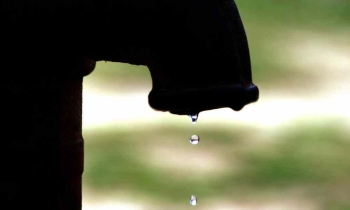A person interested in climate change could consistently read a newspaper for information about the phenomenon, but would not be fully informed, says a new study by researchers at the University of Texas at Austin.
Advertising assistant professor LeeAnn Kahlor and advertising graduate student Sonny Rosenthal found that one would need to rely on a variety of media sources—television, newspapers, radio, the Internet, magazines and books—to develop a complex understanding of climate change, the Daily Texan has reported
Some details:
The researchers surveyed more than 800 subjects from around the country about their media use and which sources they use to obtain information about global warming. Kahlor and Rosenthal then measured the complexity of each subject's knowledge of global warming.
"Although this research may seem sort of 'no duh' at first glance, it is important that consumers know that they need to branch out if they truly want to be informed," Kahlor said. "Time constraints make this difficult at times, so it helps to have evidence that says, 'Here, look, you really do need to exert some effort to be well-informed about this topic.'" Kahlor said several sources are needed because different media outlets present climate change in different ways.
"TV news is more visual, print can spend more time contextualizing the story, and the Internet lets you dig deeper into the story," Kahlor said. "On the other hand, if you only rely on one source - say television - you won't get the context or more interactive learning opportunities you might get from newspapers and the Internet."
Kahlor said that if an individual gets his or her information from a single source, they are only being exposed to a certain viewpoint. "I think the more sources you turn to, the more likely you are to encounter different views on the same topic," she said. "Each source is likely to have framed the topic in its own unique way."
Rosenthal said different media sources frame the discussion of climate change by inputting their opinion on why the issue is important. "One journalist will say climate change is a problem for penguins in Antarctica; another journalist may say it's a problem for people who grow certain types of crops or people who like to downhill ski," he said.









